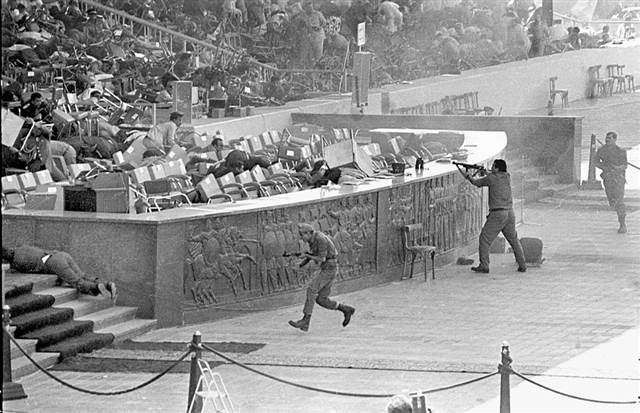In Egypt, an attack on a bus in old Cairo wounds 16 Austrian and Egyptian tourists. Gama’a al-Islamiya (Islamic Group) claims responsibility. In September, the group warned tourists that they shouldn’t enter Qana province, which includes some of Egypt’s most famous sites. The first attack on tourists occurs a month later, killing one British national. Six more attacks on tourists—in Qana and Cairo—kill more than a dozen foreign tourists.
The Islamic Group’s “spiritual” leader is Sheikh Omar Abdel Rahman. The group would claim responsibility for the multi-year campaign of tourist attacks, including the November 1997 attack at Luxor that killed 58 foreign tourists.
